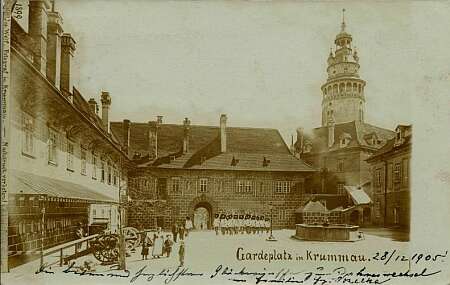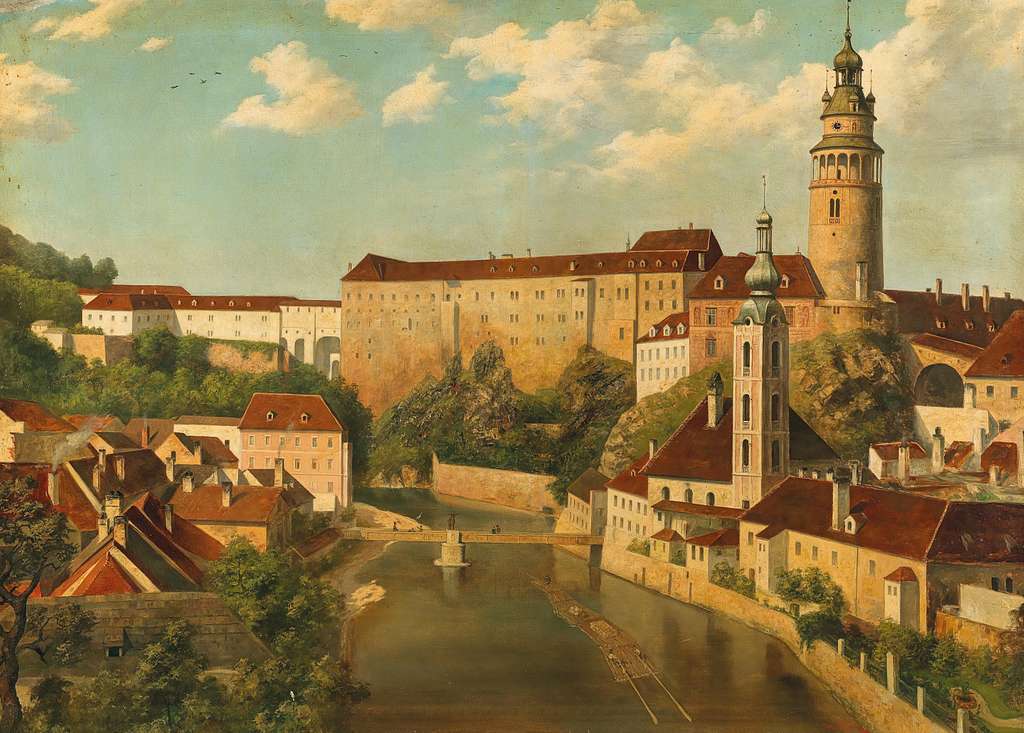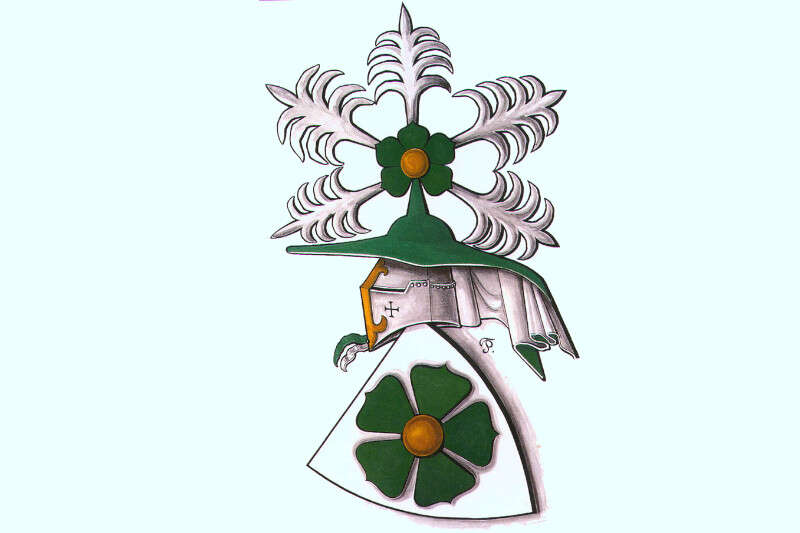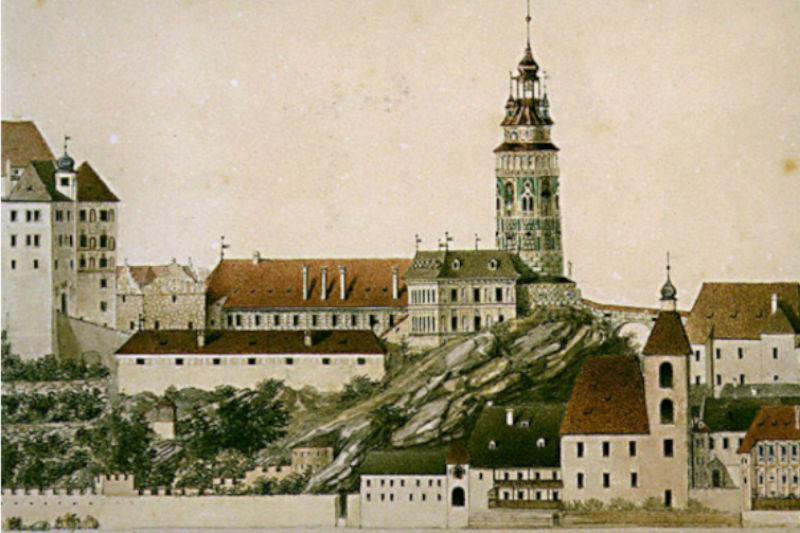Lords of Krumlov
The original Gothic castle in Český Krumlov was founded by the Lords of Krumlov some time before 1250. They represented a branch of the powerful family - Vítkovci with the five-petalled rose in their coat-of-arms.
The Czech noble family of the Lords of Krumlov originated as one of the branches of the Vítkovci family. Vítek II., the son of Vítek from Prčice, is considered to be the founder of this family. Many castles were founded in the Český Krumlov region by the allied Rosenbergs.
Green five-petalled rose
A green five-petalled rose with a golden center in a silver field was the Lord of Krumlov's coat-of-arms. The Lords of Krumlov were one of the family branches of a Czech elder family, the Vítkovci. According to an old emblem legend of the Vítkovci family's division, the five-petalled rose depicts the five sons among whom Vítek from Prčice divided the family dominions. The symbol of a green five-petalled rose was also used by the most significant member of the family of Lords of Krumlov - Záviš of Falkenštejn.
Záviš of Falkenštejn - “the magician”
He was one of the leading grandees of the powerful Vítkov family (Lords of the Rose), who possessed most of the family lands in southern Bohemia. He was the son of Budivoj of Krumlov and Perchta of Falkenstein. Moreover, they had close relations with the Austrians. In 1276-1277, Záviš even joined a Czech nobility opposition against the Czech King Přemysl Otakar II. Who started to build the strongholds of royal power (České Budějovice, Zlatá Koruna) in the middle of their estates.
Záviš soon joined the court of Queen Kunhuta, whom he then secretly married in 1280 and they had a son, Jan. The marriage caused some rumors, according to one of which the queen had been in contact with Záviš during the king's lifetime and had sought his life herself. He was even considered by some people to be a dangerous magician and sorcerer.
Too much power means too many enemies
The 12-year-old King Wenceslas II. allowed Záviš to take part in the administration of the country, becoming the king's highest hofmeister. His power and influence grew, arousing considerable envy. In June 1284, he publicly celebrated his marriage to the queen and was recognized as the king's stepfather. The king trusted him completely, and Záviš had decisive power in the country. The enemies of Záviš were increasing as they found support in Rudolf II. Habsburg. They accused him of enriching himself and his allies at the expense of the country, as well as planning to steal the royal crown and put the king's life at stake. When his wife Kunhuta died, Záviš resigned his office and disappeared from public life.
New beginnings with a sad ending
He then remarried to Jitka, sister of the Hungarian king Ladislav Kumán, and settled with her at Svojanov Castle. In the meantime, his enemies managed to turn King Wenceslas II. against him. After Záviš's son was born in his new marriage, he invited the kings of Bohemia, Hungary and Wrocław to be his godparents at the celebration of his birth.
Yet, Wenceslas II. was persuaded by Záviš's enemies that there was a plot against his person and life and decided to take revenge. He ostensibly accepted the invitation, but asked his stepfather to come and go with him to the feast. Záviš arrived with only a small entourage, indeed he was captured and condemned. He was placed inside the White Tower as a criminal after refusing to return the castles he had received from Kunhuta. He spent a total of 1,5 years there, although he kept himself occupied with writing songs.
The birth of the rebellion
The Vítkovci rose against Záviš imprisonment and gained the support of the Hungarian king. This began to make their rebellion very serious. Rudolf II. Habsburg advised Wenceslas II. to bring Záviš in front of the castles that had not yet been conquered and threatened to execute any garrison that did not want to surrender. Several castles surrendered, only at Hluboká Castle did his brother Vítek disbelieve these threats. The king himself came to Hluboká to add weight to the threats, but Vitek refused to surrender. Záviš was beheaded with a plank (possibly a sharp plank) and buried in the Vyšebrod monastery on August 24, 1290.
The last lord of Krumlov was Vok, who died childless in 1302. The Krumlov castle with the surrounding area fell to the Rosenberg branch of the Vítkov family - the Lords of Rosenberg.










